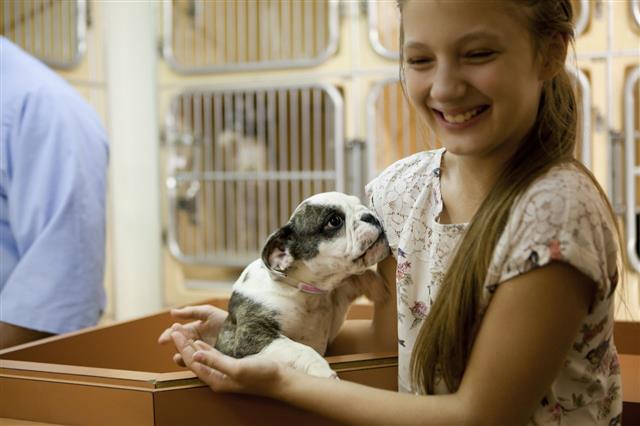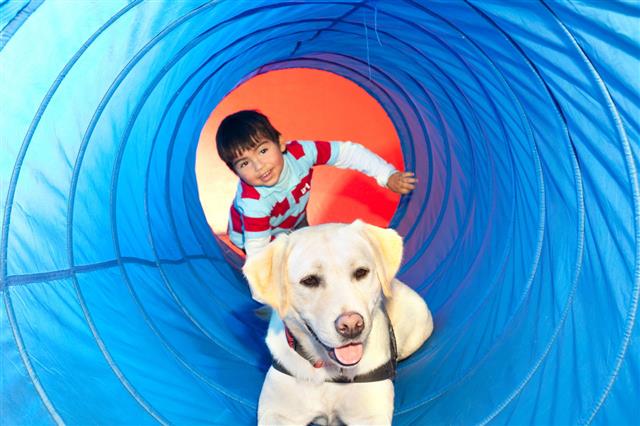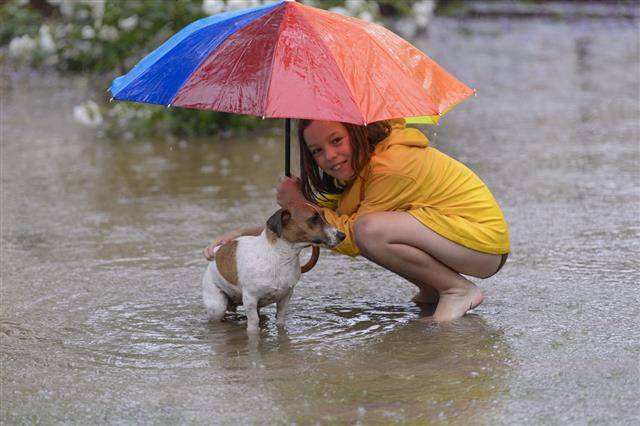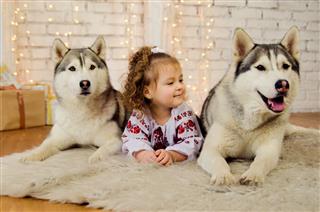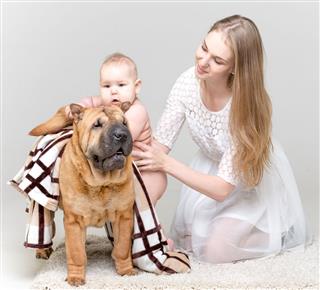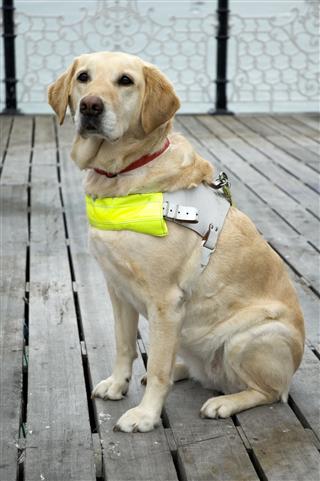
You think pets, and you think love, which happens to be the bottom line of animal-assisted therapy. Dogs, in particular, are absolute stalwarts when it comes to dishing out some fuzzy loving. We have here a lineup of the best therapy dog breeds.
A Yorkshire Terrier by the name of Smoky was the first known therapy dog in the world. She worked for around 12 years, during and after WWII.
Volumes have been written on how dogs are a man’s best friend, and rightfully so. They enter our lives with their unbridled companionship, and expect little in return. A dog’s mere presence is a source of great comfort to the keeper. And, it wouldn’t be too wrong to say that at times, the dog’s company is preferred over humans!
It is amazing how dogs have effortlessly molded themselves to becoming the beacons of animal-assisted therapy. They are naturally blessed with a temperament so kind, it leaves us with visions of four-legged angels. Be it a lap dog or a hunting breed, dogs can be trained to hone their sensitivity meter, and become a source of comfort to anyone who needs them.
The Finest Therapy Dogs
There are certain qualities that therapy dogs need to possess. They have to be obedient, allow strangers to pet them, not become easily excited, be comfortable around people walking unsteadily, and be clean and well-groomed.
The breed of a therapy dog may be inconsequential, as long as the above traits are present. However, there are a few specific breeds mentioned here that take to being therapy dogs more than the others.
St. Bernard
Best described as gentle giants, these dogs are an absolute delight to have around. As traditional rescue dogs, St. Bernards are patient and attentive at the same time. Their protective attitude and warm, cuddly looks make them ideal therapy dogs for children.
German Shepherd
German Shepherds find themselves in this list owing to their high level of intelligence, which means they can be trained to become excellent therapy dogs. They are a bit vary of strangers, but with the right training, can become faithful and devoted companions.
Rottweiler
Go beyond the Rottweiler’s steely exterior, and you’ll find a dog who is very calm and obedient. Their kind may not be the friendliest breed out there, but what they lack in this area is compensated by their devotion towards their work. The right kind of training can tap the rottie’s inner potential to be a loving, faithful dog.
Standard Poodle
Standard Poodle The poodle’s apparent beauty may create the impression that these are standoffish dogs, but you couldn’t be more wrong. It is in their nature to be very instinctive, and they make use of this quality to serve as excellent therapy dogs. Their adorable appearance is an added advantage.
Labrador Retrievers
Is there anyone who doesn’t love a lab retriever? Extremely unlikely. With their affable disposition and loving nature, this breed exemplifies the essence of animal-assisted therapy. In particular, these dogs can be trained to help the blind, as well as autistic individuals.
Bullmastiff
Ferocious looking they may be, but Bullmastiffs are as gentle as they come. Their protective nature is almost genetic, and flourishes with human interaction. Also, these dogs are not too keen on barking, which makes them ideal therapy dogs.
Yorkshire Terrier
Smokey, the dog considered to be the first known therapy dog was a Yorkie, and that says something about these cute and playful canines. Yorkies may go overboard with their enthusiasm, but proper training can keep this in check.
Pug
Pugs are a tiny bundles of energy, and make good therapy dogs. Children, especially, bond very well with Pugs, no surprises there. These canines love to be petted and are very enthusiastic as well. With their compact size, these dogs are perfect for outdoor visits.
Beagle
There’s a reason why Beagles don’t make good guard dogs, and that is because of their affectionate and friendly nature. They excel as therapy dogs, of course. Their nature and appearance is non-threatening, which works as an advantage.
Pembroke Welsh Corgi
Corgis are family dogs, and are eager learners. They are gentle, quiet, and well-behaved; reason enough to be considered as good therapy dogs. Their playful nature may distract them at times, but this can be contained through training.
Bichon Frise
Bichon Frises are bred to be hypoallergenic, and work well with those suffering from certain allergies. These dogs have a friendly and playful disposition. They also enjoy the company of humans, which makes them perfect for this job.
French Bulldog
Frenchies are adorable lap dogs, and are very even-tempered by nature. They crave affection, and are equally generous with returning the favor. These quiet and friendly companions are great with adults and children alike.
Ultimately, it can be said that it is not the breed of the dog that matters. It is what we train them to become. Given the right kind of training, any dog will be able to rise to the occasion and do what comes naturally to them – dispense unconditional love.
